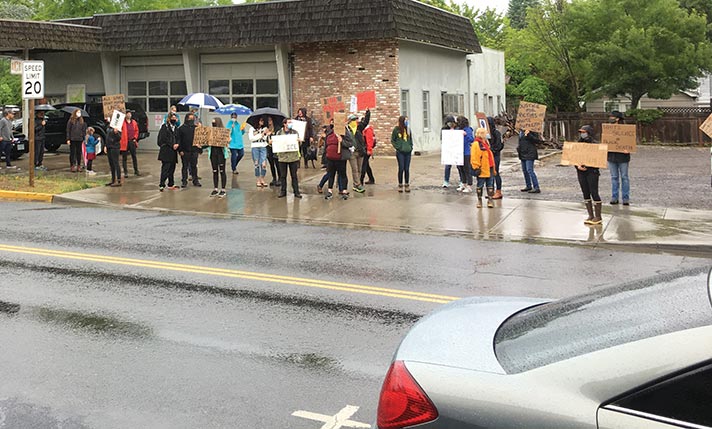A Few Minutes with the Mayor – July 2020
One of the most familiar quotations in literature came to mind as I saw our nation’s cities explode in violence once again. It was by Charles Dickens who wrote the following words to introduce “A Tale of Two Cities,” a story of nobles and not-so-nobles during the French Revolution – “It was the best of times, it was the worst of times, it was the age of wisdom, it was the age of foolishness, it was the epoch of belief, it was the epoch of incredulity, it was the season of light, it was the season of darkness, it was the spring of hope, it was the winter of despair.” Generations later, these words remain relevant in these days of turmoil, discord and distress.
We are a great nation beset by troubled people, some afraid of changing values, others seeking change no matter the cost. We have dissipated the past, become confused with the present, and frightened at the thought of tomorrow.
We are the only nation in the world that fought a war over slavery. 625,000 men died in the Civil War. That is more Americans than died in World War I, World War II, Korea, and Vietnam combined. It was an astounding 2% of the population which would be the equivalent of six million people today.
When the war ended, the slaves were free but they were economic and social outcasts. Eighty years later, even Louis Armstrong had to use the employee’s entrance when visiting the Waldorf Astoria Hotel.
On a personal note, at the age of sixteen I was friends with four fellow students at Syracuse University. They were all seasoned war veterans and what they saw in this green-not-yet-a-man I’ll never know, but included me they did in their social world. One day, after watching a Betty Grable movie, we were walking down the street during which three of them voiced their admiration of Grable. The fourth said, “I can’t talk that way where I grew up.” When asked what he meant, he replied, “I’d be in trouble if I said I admire a white girl.” The year was 1946 and he was black. We said no more.
Three years later, with a buddy in Texas, and in uniform, we walked to the back of the bus to sit down. The driver stopped the bus and shouted to us to move forward. It seems we were sitting where only blacks sat, separated from whites. After a few words, the driver concluded the conversation by telling us if we didn’t like it, we could get off the bus.
That was 71 years ago. It’s a different world today… or is it? The answer depends upon who is asked the question. Reality is that which is perceived, at least in cultural, social, or political concepts.
The mass demonstrations seen in recent days argue the question. Emotions run deeper every year on the part of those who perceive themselves to be discriminated against. Primed like logs in a fireplace, they need only a spark to set them off. Years ago, it was Watts, then Rodney King… today Minneapolis.
In my youth, there used to be a phrase which said, “50 Million Frenchmen can’t be wrong.” It was from a 1927 hit song, a parody on censorship in the United States as compared to life in France. The question today is, can several hundred thousand demonstrators be wrong? The answer in an orderly society is YES, when they turn to violence, when they go beyond demonstrating and turn to rioting and looting. Such behavior leads to further division, not inclusion.
Whatever progress has been made in racial harmony since I walked that street in Syracuse a lifetime ago, has been made by the people themselves… not our political leaders or institutions. These believe they can legislate social mores. One would think that the complete and utter failure of Prohibition in the 1920s would be a lesson, but who remembers history? And when do political leaders admit being wrong? No! The answer to achieving racial harmony lies within all of us, “We the People.” Isn’t that where the answer always is?

 Paul Becker is the current Mayor of Historic Jacksonville, Oregon.
Paul Becker is the current Mayor of Historic Jacksonville, Oregon.